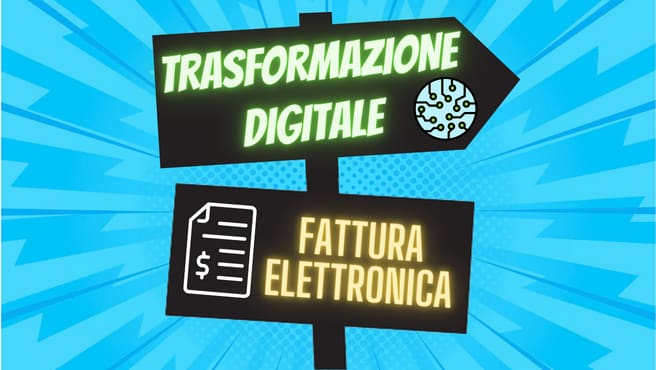Electronic invoicing is only the first step on the road to corporate digitisation

Electronic invoicing has been an effective way for many companies to start a digitisation journey. Why do we argue that e-invoicing was a good starting point for digital transformation? Let's look at what e-invoicing has taught us.
The 4 things e-Invoicing has taught us
Less paper means more efficiency: e-Invoicing is much more efficient than paper invoicing. Electronic documents can be sent, received and archived much more easily than paper documents. This means that it takes less time to process invoices and there is less room for error, improving the transparency and accuracy of the process.
Saving time and money: electronic invoicing has eliminated the costs associated with printing, mailing and managing paper documents. In addition, electronic invoicing makes it easier to manage deadlines and track invoices, reducing the risk of missing or forgetting payment deadlines.
Reduce errors: electronic invoicing uses advanced software for data management and validation. This means there are fewer typing errors and less likelihood of sending invoices to incorrect addresses or with incorrect information.
Being green: electronic invoicing is a more sustainable way to manage documents. It does not require paper to be printed, thus reducing environmental impact and improving corporate sustainability.
In summary, electronic invoicing offers many benefits for business management, from increased efficiency and accuracy to sustainability and regulatory compliance. The digitisation of invoicing is an excellent starting point for a broader digital transformation of the company, increasing competitiveness and improving the quality of business operations. So, now that the first step has been taken, how can we move forward?
Besides e-invoicing, there are many other areas where your company could continue the digitisation process. Here are some suggestions:
How to continue on the road to digital transformation
Automate business processes: once e-invoicing has been successfully implemented, you can look at other business processes that can be automated, such as purchase requisition processing, sales order processing and inventory management. This will help you improve efficiency and reduce errors.
Managing documents: digitising business documents is another important step in the digital transformation. Using a document management system will allow your company to easily access important documents anytime and from anywhere, minimising the need to physically store documents.
Analysing data: once information has been digitised, you can use data analysis technologies to derive valuable information about customers, employees and the business. This will help your company make more informed decisions and improve business efficiency.
So Smart is the online management software, based on Microsoft technologies, designed to digitize small businesses and manage them completely online in just a few days... with all the advantages offered by Business Central management, Power BI analytics, and productivity and collaboration software like Excel, Word, Teams, and PowerPoint. A productivity suite which will be even more powerful with the advent of Copilot's AI.
